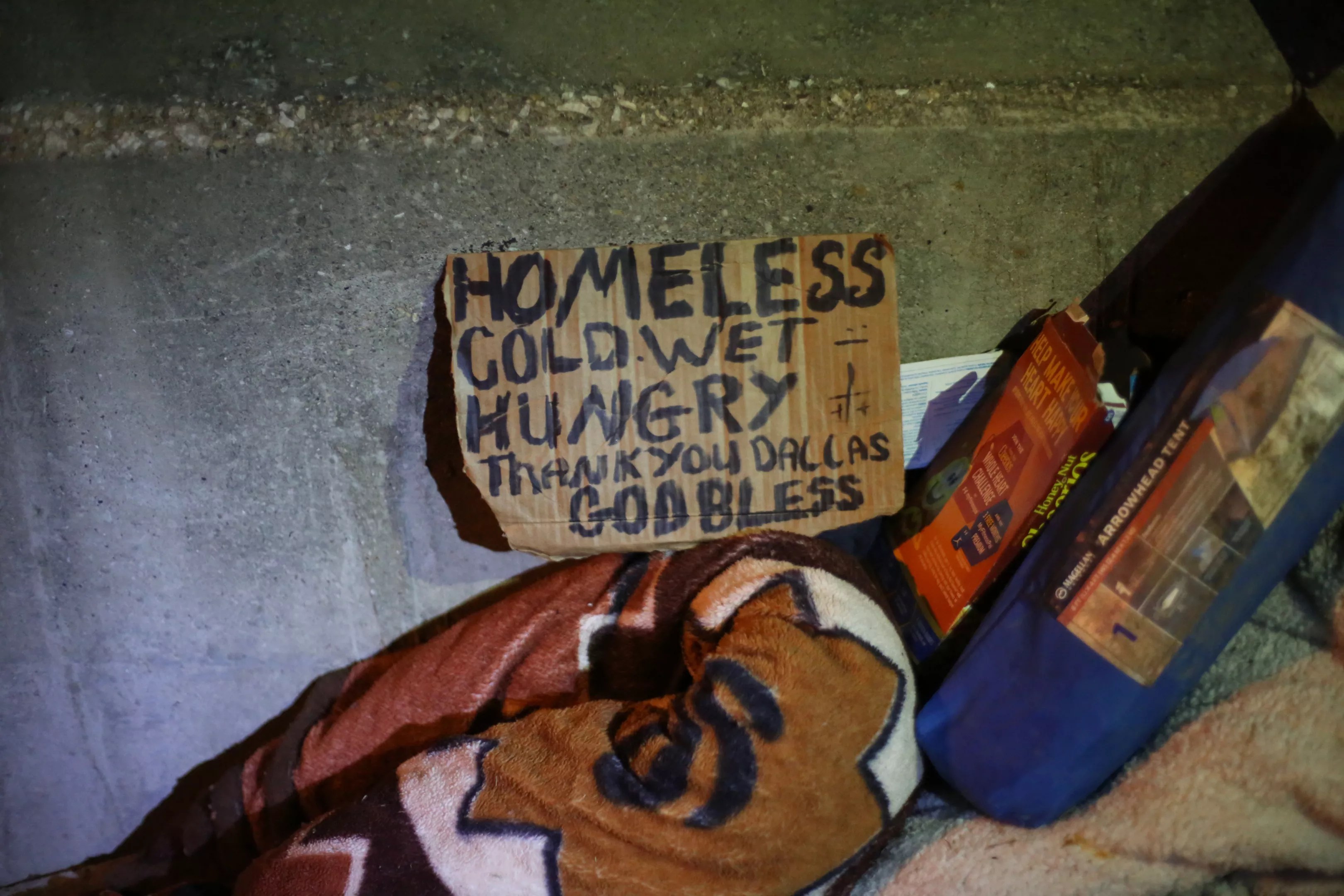
Dylan Hollingsworth

Audio By Carbonatix
The Office of Homeless Solutions has proposed that the city reallocate about $1 million in CARES Act funding for pandemic relief to counter a lack of shelter space in Dallas.
The money would go toward paying for hotels that providers are already using for the people shelters can’t accommodate because of a lack of space. The funds could also be used to help establish more relationships between providers and hotels so they can house more people.
A memo from Deputy City Manager Kimberly Bizor Tolbert said Dallas is seeing an increase in shelter space overflow as a result of “record inflation, the housing crisis and the aftereffects of an economic downturn.”
Homelessness is on the rise, particularly among families, and there’s no sign it will slow. More people are calling local homelessness providers like Family Gateway, OurCalling and Austin Street Center for their services. More families are entering the shelter system. More are staying in uninhabitable places or hotels, and many are in danger of imminent homelessness because of pending evictions, according to the memo.
Christine Crossley, director of the Office of Homeless Solutions, told the Housing and Homelessness Solutions committee this week that in community meetings about the upcoming budget, people said the city should consider funding to address shelter overflow. Crossley also said recurring grants from the city could supplement dwindling private dollars that have helped with the shortage of shelter space.
During budget discussions, Crossley said people have asked if expanding shelter space through hotels was a viable option. “We confirm that it is currently a successful model,” Crossley said. “It has been for quite some time and we don’t see that changing.”
“They don’t have enough rooms and they’re swamped.” – City Council member Cara Mendelsohn
The Dallas City Council could vote on reallocating the funds in September. But some don’t think these measures are enough.
“Today, this is insufficient. We need a lot more emergency sheltering,” City Council member Cara Mendelsohn said at the Housing and Homelessness Solutions committee. There simply isn’t enough shelter space in Dallas, she said.
Mendelsohn often asks city staff whether they have enough beds for those who’d be willing to go to shelters.
“I think you’ve done a really nice job of walking that line of not answering it, and I understand why, but the answer is no we don’t,” Mendelsohn told Crossley. “That’s what the shelter directors are saying. They don’t have enough rooms and they’re swamped. They’re putting people, at their own expense, in hotels. People are just everywhere. We have to do more emergency sheltering.”
Shelters may not be the most ideal living situation, but Mendelsohn said people can’t be left outside, especially given recent extreme weather. “It is way too hot, or it’s way too cold, and if they’re willing to come into shelter, we have a moral obligation to provide it.”
Mendelsohn said she thinks it’s a problem that requires more than just $1 million to fix. Dallas needs more shelter space in general, but it also needs specific types of shelter. For example, the city is working on creating shelter space specifically for LGBTQ youth. The local nonprofit Promise House only has four beds at its shelter for LGBTQ youth.
Many shelters are also unisex, which can divide couples and families. “People are very vulnerable. They’re very lonely when they’re homeless and they do couple up,” Mendelsohn said. “They’re not going to leave the only person they think cares about them behind and be separated by gender. I’m just going to say we need to get beyond whatever self-righteousness we have and make sure that we provide the kind of housing that gets people off the streets.”
If the funding is approved, next year the city will look at how the money was spent to determine if more is needed to adequately expand Dallas’ available shelter space.
While the shelters are experiencing constraints, Dallas and its partners, such as neighboring cities and the Metro Dallas Homeless Alliance, have provided housing to over a thousand people through something called the R.E.A.L. Time Rapid Rehousing initiative. The goal of the initiative is to house 2,700 people. Upward of 1,800 others are enrolled in the program.